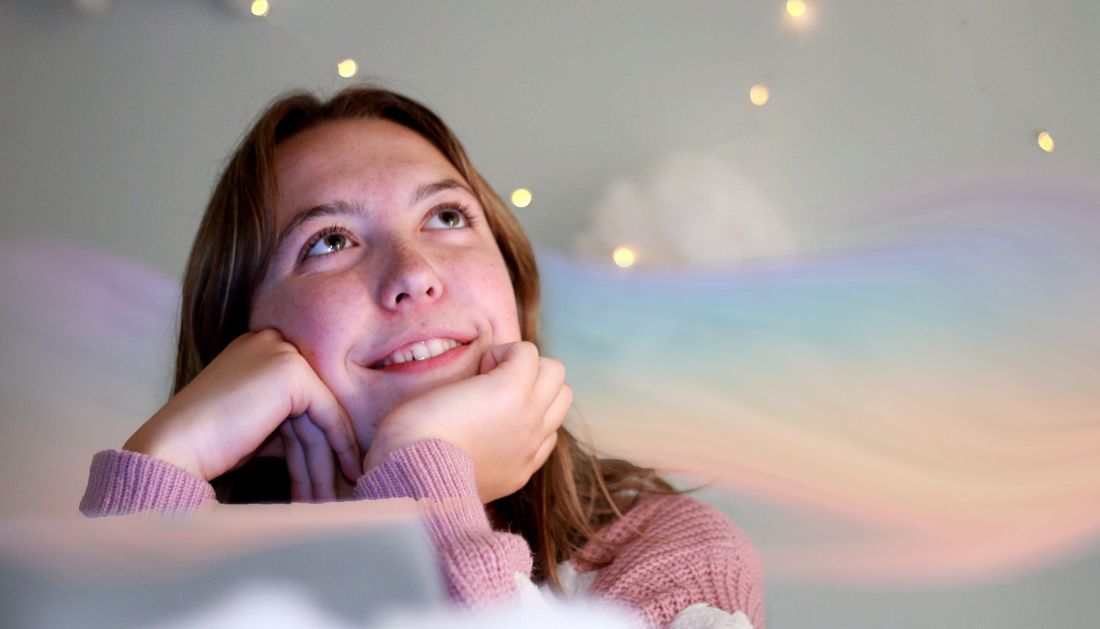

A recent study from the IMT School for Advanced Studies in Lucca has uncovered new insights into the factors that affect dream recall. Published in Communications Psychology, the research sheds light on why some people wake up with vivid memories of their dreams, while others struggle to recall anything.
The study, which involved over 200 participants ranging in age from 18 to 70, examined how various factors influence the ability to remember dreams upon waking. Participants recorded their dreams for 15 days, immediately after waking, using voice recorders. They also wore sleep monitors that tracked their sleep patterns, including sleep duration and disturbances.
One of the key findings is that people with a positive attitude toward dreams and a tendency to daydream were significantly more likely to remember their dreams. Sleep patterns also played a critical role, with those who spent longer periods in light sleep having a better chance of recalling their dreams. Interestingly, younger participants were more likely to remember their dreams, while older individuals reported more instances of “white dreams,” where they felt they had dreamed but couldn’t recall any details. Seasonal variations were also noted, with dream recall being lower during winter months compared to spring.
The study also looked at other factors such as anxiety levels, interest in dreams, and cognitive abilities like memory and attention. The results indicate that dream recall is not just a random occurrence, but rather a complex interplay of cognitive traits, sleep patterns, and personal attitudes.
Lead author, Professor Giulio Bernardi, explained that these findings deepen our understanding of the mechanisms behind dreaming and could help improve mental health research. The team also plans to compare their findings with clinical populations in future studies, which could reveal new insights into how abnormal dreaming patterns relate to mental health conditions.
In essence, this study reveals that dream recall is influenced by much more than just chance—it’s shaped by how we sleep, think, and even how we feel about our dreams.
More Information: The individual determinants of morning dream recall, Communications Psychology (2025). DOI: 10.1038/s44271-025-00191-z
more recommended stories
 Dietary Melatonin Linked to Depression Risk: New Study
Dietary Melatonin Linked to Depression Risk: New StudyKey Summary Cross-sectional analysis of 8,320.
 Chronic Pain Linked to CGIC Brain Circuit, Study Finds
Chronic Pain Linked to CGIC Brain Circuit, Study FindsKey Takeaways University of Colorado Boulder.
 New Insights Into Immune-Driven Heart Failure Progression
New Insights Into Immune-Driven Heart Failure ProgressionKey Highlights (Quick Summary) Progressive Heart.
 Microplastic Exposure and Parkinson’s Disease Risk
Microplastic Exposure and Parkinson’s Disease RiskKey Takeaways Microplastics and nanoplastics (MPs/NPs).
 Sickle Cell Gene Therapy Access Expands Globally
Sickle Cell Gene Therapy Access Expands GloballyKey Summary Caring Cross and Boston.
 Reducing Alcohol Consumption Could Lower Cancer Deaths
Reducing Alcohol Consumption Could Lower Cancer DeathsKey Takeaways (At a Glance) Long-term.
 NeuroBridge AI Tool for Autism Communication Training
NeuroBridge AI Tool for Autism Communication TrainingKey Takeaways Tufts researchers developed NeuroBridge,.
 Population Genomic Screening for Early Disease Risk
Population Genomic Screening for Early Disease RiskKey Takeaways at a Glance Population.
 Type 2 Diabetes Risk Identified by Blood Metabolites
Type 2 Diabetes Risk Identified by Blood MetabolitesKey Takeaways (Quick Summary) Researchers identified.
 Microglia Neuroinflammation in Binge Drinking
Microglia Neuroinflammation in Binge DrinkingKey Takeaways (Quick Summary for HCPs).

Leave a Comment